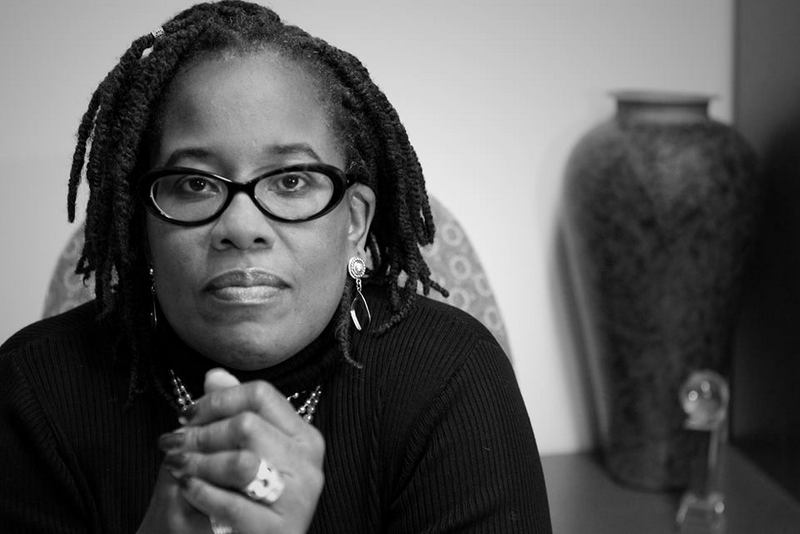[ad_1]

By Dr. Kaye Whitehead
Special to the AFRO
In hindsight, Black History Month probably should have been canceled this year. From the collective grieving over the tragic deaths of Kobe and Gianna Bryant to the misogynistic attack by Snoop Dogg on Gayle King, it has indeed been the worst of times. It is a palpable sense of loss as we collectively grieve the death of someone that we did not personally know, but we feel a deep connection to him and his life.
I have read countless tributes and reflections as everyone tried to find a way to express their grief. I cried when “#GirlDad” trended and immediately picked up the phone to call my father and thank him for the way that he poured his love out to me. I thanked him for being fully present in my life and for being a feminist father long before people even understood what that term meant. I have sat with both grown Black men and young teenagers as they cried over Kobe and felt comfortable sharing their pain and their feelings. When Snoop threatened Gayle, before I could find the words to express my anger, my sons spoke up and stepped into that space to defend Black women. As my son said to one of his friends, “Even though I don’t agree with her questions—it’s too soon, in my opinion—I believe that she has the right to ask them without fear of violence from Black men.”
Yeah, Black Twitter probably should have canceled Black History Month.

Growing up, February was always a month of Black joy and Black celebration. It was a time when my father dug out his Kente-cloth laden ministry robes and sprinkled his sermons with the words from some of his favorite Negro Spirituals. It was a month full of singing Black music and learning obscure Black facts. It was the one month out of the year where I believed that White people had to sit with, think about, and bear witness to our contributions to this country. It was a time to help Black people understand that our history is American history, and our story is a part of the larger narrative that describes and defines who we are as a nation. My teachers would line the hallway walls with Black art, the cafeteria would serve soul food, and advertisers would flood the airways with commercials and products and events specifically designed for us.
Even though I was taught that Black history was replete with stories of tragedy and sorrow, in my world, during February, it was just the opposite. It was a moment to take a break from the pain that comes from living and breathing while Black in this country. I grew up in Washington D.C., “Chocolate City,” where I lived in a middle-class all-Black neighborhood, attended an all-Black school where some of my teachers either lived on my block or attended my church, and I worshipped at an all-Black church. My life was filled with learning about the history of my people, even when I did not want to hear it. My father would tell us that since the country was going to focus on our pain during Black History Month, he would focus on our joy. Since they planned to focus on our deaths, he would focus on our lives. Since they focused on our tears, then he focused on our laughter. It felt like a month-long house party where we were constantly reminded of how blessed we were to be the descendants of people who chose to survive. Back then, Black History Month was a way of building you up, of lifting your spirit, of providing you with the hope that you needed to get through the rest of the year.
This month has been hard. On that day of the helicopter crash, I was on the phone with both my mother and my son trying to console them. I spent the next day on the radio, listening to my callers share their pain about what happened. Death has a way of reminding us of you and your family’s mortality. I found myself checking on my husband and my sons, reaching out and texting just to make sure that they knew that I loved them. I thought a lot about the other parents on the helicopter and the children that they were leaving behind, and I found myself calling my mom every day just to hear her voice. This has been a challenging month, not a happy one or a joyous one, but perhaps a necessary one. Maybe Black History Month is also about taking a moment to stand still and remind yourself that despite everything that has happened, you are still here.
Karsonya Wise Whitehead ([email protected]; Twitter: @kayewhitehead) is the #Blackmommyactivist and an associate professor of communication and African and African American studies at Loyola University Maryland. Recently selected for the Essence Woke 100 List, she is the award-winning host of “Today With Dr. Kaye”on WEAA 88.9 FM. She lives in Baltimore City with her husband and their two sons.
The opinions on this page are those of the writers and not necessarily those of the AFRO.
Send letters to The Afro-American • 1531 S. Edgewood St. Baltimore, MD 21227 or fax to 1-877-570-9297 or e-mail to [email protected]
[ad_2]
Source link

